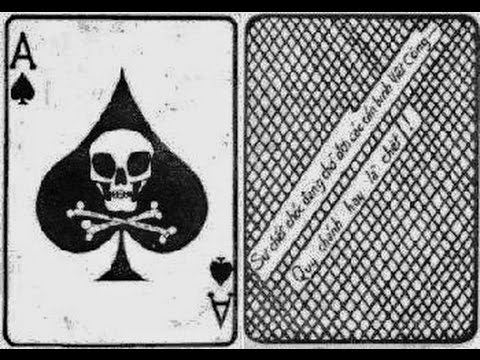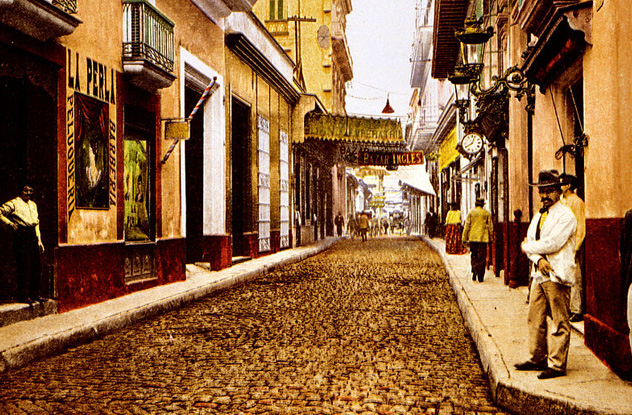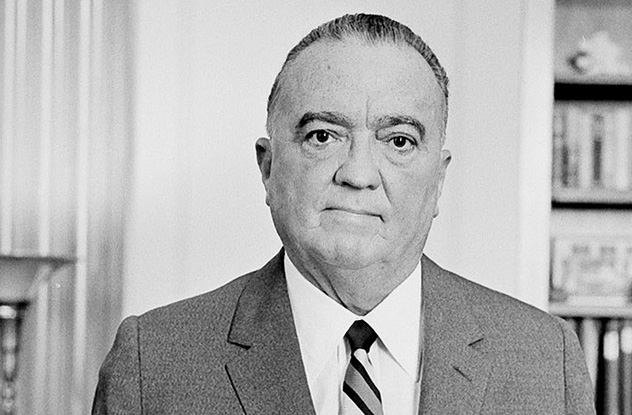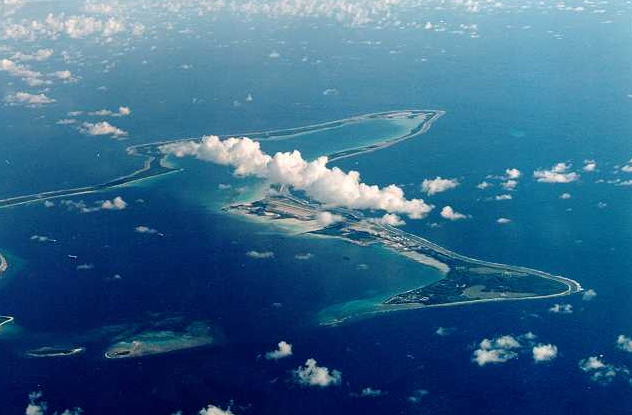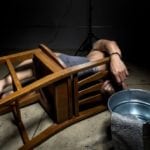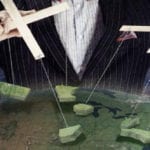10New Zealand Developed An Unstoppable Tsunami Bomb
During the Second World War, the Allied governments knew that it would take a weapon of unstoppable power to avoid a land invasion of the Japanese islands. But while the US worked on the mysterious Manhattan Project, the government of tiny New Zealand decided to throw their resources behind a somehow even more terrifying weapon. They were going to find a way to unleash the fury of nature itself on the enemy—via an apocalyptic tsunami machine. Even more terrifyingly, they came pretty close to succeeding. The “Tsunami Bomb” they came up with was actually a series of bombs planted several miles offshore. When detonated simultaneously, the bombs would supposedly produce a hugely destructive tidal wave. The scheme received financial backing from the US, who regarded it as their backup plan in case the A-bomb didn’t work out. The New Zealanders successfully tested much smaller versions off New Caledonia and around Auckland. In 1999, scientists at the University of Waikato suggested that, not only was the plan feasible, but a large-scale version of the bomb would have been capable of producing a 30-meter-high (100 ft) wave. Not that there weren’t drawbacks. Planting a line of explosives along a coastline isn’t exactly easy when that coastline is full of enemy troops with heavy weaponry. The US lost interest after the A-bomb was successfully tested at Los Alamos and pulled funding. Astonishingly, New Zealand didn’t give up on the plan even after the end of the war—they continued producing reports on it well into the 1950s.
9The Soviets Built An Orbiting Laser Battle Station
In 1983, when Ronald Reagan announced the Strategic Defense Initiative to protect America from an ICBM attack, the Soviets were alarmed—but not for the reason you’d think. The Soviet military had already thought the new American Space Shuttle was secretly intended to launch “large space-based weapons platforms,” or even that it would dive into the atmosphere and drop a bomb on Moscow. The Strategic Defense Initiative appeared to them to be a cover story for more space-to-ground weapons. And if the Americans were taking warfare to space, the USSR had to respond. And respond they did, with every Bond villain’s fever dream—an orbiting, laser-equipped battle station known as Polyus-Skif. The powerful carbon-dioxide laser it carried would be capable of blasting enemy satellites out of orbit and, if necessary, reducing the manned Space Shuttle to a scattering of floating debris. It was even theoretically capable of intercepting enemy ICBMs, although technical limitations would soon render this possibility unlikely. In fact, technical problems dogged the project from the start. A laser powerful enough to destroy a satellite was too heavy for most rockets—the Soviets had to build a brand-new launch pad to accommodate the weight of the rocket they used. They also had to design a complex control system capable of compensating for the laser’s exhaust gases. Yet all the difficulties were overcome and a test version was launched on May 15, 1987. A “tiny software error” meant it ended up scattered in burning chunks across the Pacific Ocean. Gorbachev, desperate to cut down on military spending, vetoed building another one, killing the dream of a functional Death Star for the time being.
8The US Army Pretended To Be Ghosts
During the Vietnam War, the US military found itself fighting a guerrilla war against an enemy who blended in with, and recruited from, the local peasantry. The US brass knew there was only one possible solution: ghosts. Specifically, they decided to exploit an old Vietnamese folk tradition that the spirits of those who died far from home would be doomed to wander the Earth. Under the label “Operation Wandering Soul,” psyops teams created a recording of the ghost of a Viet Cong soldier mourning his poor choices. Sample dialogue included, “My friends, I come back to let you know that I am dead . . . I am dead. I am in Hell . . . just Hell.” The genuinely unsettling tape was intended to be played at night to terrify the enemy into deserting. You can find a full translation here, but just listen to the recording above from the 2:00 mark. Imagine being a terrified 18-year-old Viet Cong peasant conscript, away from home for the first time, hearing it echoing through the dark jungle at night. In practice, it’s not clear whether the tape had much direct effect on soldiers. Presumably, the North Vietnamese were familiar with the concept of a recording. The program might have been most useful in getting the enemy to give away their position by opening fire on loudspeakers. Operation Wandering Soul wasn’t the first time the US had tried such a plan. While fighting communist guerrillas in the Philippines, CIA agent Edward Lansdale claimed to have recorded an enemy spy’s confession. After the man was executed, Lansdale hid broadcasting equipment in the cemetery and played the confession in the middle of the night. It sounded like the dead spy was warning others not to repeat his mistakes. The entire village fled their mountain town in fear, leaving the Huk guerrillas stationed there without food. The hungry Huks had to descend the mountain, where the American army quickly defeated them.
7America Planned To Fake The Apocalypse
Lansdale was a favorite of President Kennedy, who called him “America’s James Bond” and appointed him to lead the campaign to covertly overthrow Fidel Castro. Lansdale, true to form, immediately got weird with it. His proposed schemes included flooding the island with cheap marijuana and counterfeit currency, airdropping forged photos of an obese Castro surrounded by food, and announcing a “misfire” of a nuclear missile toward Cuba. He was also the maniac behind Operation Northwoods, probably the most infamous plan in US military history, which proposed staging false flag attacks on American soil to whip up public sentiment against Cuba. There was even a plan to fake evidence that Cuba was to blame if John Glenn’s upcoming spaceflight failed fatally. Northwoods progressed alarmingly far before the civilian leadership rejected it. However, Lansdale’s preferred plan was a possibly even crazier plot dubbed “Elimination by Illumination.” Lansdale wanted his agents in Havana to start a propaganda campaign to convince the locals that the Second Coming of Jesus Christ was imminent. They would fake portents and omens, stir up religious mania, and do whatever else necessary to convince the average Cuban that the End Times were at hand. The campaign would emphasize that Christ was furious at the atheist communists seeking to control the world—and would even hint that Castro might be the Antichrist. Then, when the rumors reached a fever pitch, a secret American submarine would silently surface off the coast of Havana and fire incendiary shells to light up the night sky. Convinced that the world was ending, the panicked residents would riot and overthrow Castro before an angry Jesus turned up. If you’re thinking that sounds like a ridiculous plan, you’re right, which is probably why it was never actually put into action. Sorry, Ed.
6The Japanese Tried To Build A Death Ray
Death rays have been a staple of science fiction for decades—but could they exist in the real world? Nikola Tesla certainly thought so, boasting that he could produce one capable of instantly annihilating an army of one million. Tesla never bothered to give any further details, but his reputation was enough to intrigue the Japanese military, who spent much of World War II trying to produce a ku-go (“death ray”) of their own. By 1943, Japanese researchers at Shimada City, including future Nobel Prize laureate Sin-Itiro Tomonaga, had succeeded in developing a high-powered magnetron capable of generating an intense beam of radiation. The Japanese destroyed their research at the end of the war, but pieced-together accounts indicate that they were trying to turn this into a weapon. They had some limited success. The weapon could kill a rabbit at a distance of 1,000 meters (3,250 ft)—but only if the rabbit stood perfectly still for at least five minutes. Since indecisive rabbits have traditionally been banned from joining most militaries, the project was scrapped.
5The KGB Wrote Crazy Letters To Newspapers
We’ve already mentioned how the KGB staged a massive disinformation campaign aimed at convincing people that the US was responsible for creating AIDS in a lab. But that was only the tip of the iceberg. All those crazy conspiracy theories that paranoid people are convinced the CIA is covering up? Odds are there was at least some Soviet involvement in publicizing them. Highlights included the claim that JFK and Martin Luther King were killed by government operatives and the rumor that J. Edgar Hoover was a transvestite. Their MLK campaign was particularly disingenuous, since the KGB hated King while he was alive, spending most of his lifetime spreading the rumor that he was himself a government agent. Since all those are still popular theories today, you would be forgiven for thinking the KGB was a well-oiled rumor machine. But the truth is that, in the US at least, the theories probably largely spread by themselves—the KGB’s efforts at understanding the American public were hilariously inept. Lacking any wide network of agents in the US itself, they were largely reduced to writing cranky letters to the news. For example, in the ’70s, the agency assigned some of its best forgers to fake letters from the leadership of the Ku Klux Klan to major American newspapers. The letters alleged that J. Edgar Hoover had turned the FBI into a “den of faggots,” and that he was conspiring to infiltrate his homosexual buddies into the CIA as well. The forgeries were impeccable—a huge amount of work went into them—and nobody realized they weren’t really from the KKK until the KGB’s archives were opened in the ’90s. But they were also never published and had no effect at all because what kind of newspaper editor would take that letter from the Klan seriously enough to publish?
4Machiavelli Tried To Steal A River
In 1499, Niccolo Machiavelli had just been appointed to high office in the Italian city-state of Florence. The city was locked in a desperate struggle with its arch-rival Pisa, and Machiavelli was tasked with finding a way to break the deadlock. Pisa sat at the mouth of the Arno River, which also flowed through Florence. All the city had to do, Machiavelli reasoned, was steal the entire river, and Pisa would just wither away naturally. Stealing a river isn’t exactly an easy undertaking, so Machiavelli turned to the one man who could pull it off—Leonardo da Vinci. The famous artist and inventor drew up plans for rerouting the course of the waterway that would move the Arno 32 kilometers (20 mi) from its usual course, devastating Pisa and giving Florence an unimpeded outlet to the sea. Sadly, like most of Leonardo’s designs, there were some fairly significant practical problems, and the plan had to be abandoned after the works collapsed. The war with Pisa dragged on for another five years, and Machiavelli soon found that his niche lay more with political philosophy and less with practical plans.
3America And Britain Collaborated On A Secret Island Lair
Remember how in Skyfall, Javier Bardem’s villainous Silva has a creepy base on a deserted island that he forced all the inhabitants to abandon? America has one of those. In 1965, the US decided that the Indian Ocean island of Diego Garcia, then a British colony, would be the perfect place for a top-secret military base. The only problem was that it had thousands of residents. So the British government casually passed a law making it illegal for civilians to live there. They then rounded up the native islanders at gunpoint, forcing them to move hundreds of miles to Mauritius. As a bonus, they also rounded up and gassed the islanders’ beloved pet dogs. Half a century later, the islanders are still trying to get their home back. In 2012, the island was declared part of a wildlife refuge, which the islanders claimed was just a legal excuse to prevent them from going home. Britain insisted it was nothing of the sort—until Wikileaks cables revealed that it very much was.
2Britain Tested Chemical Weapons (On Its Own People)
During the Cold War, the British government was concerned that Soviet germ warfare could devastate the country. Luckily, they found the perfect location to test the effects of dangerous germs on an island just like Britain: Britain. Between 1945 and 1970, the UK military carried out a series of biological and chemical weapons tests on its own people. Many of these were largely benign, involving the release of harmless strains of bacteria to study how they spread throughout the country. But some of the tests involved genuinely dangerous substances. For example, between 1955 and 1963, RAF planes dropped huge amounts of zinc cadmium sulfide across the country. The fluorescent substance was easy to track and provided a perfect example of how more dangerous chemical weapons might spread. The substance was not tested for toxicity before it was released. On another occasion, E. coli bacteria were released from a ship anchored off the coast, potentially exposing up to one million people. Other tests have been accused of causing miscarriages in Dorset. The British government continues to insist that all the tests were safe, but either way, exposing your citizens to mysterious substances without telling them remains pretty creepy. Not that the British were alone in this. In the 1950s, the US sprayed zinc cadmium sulfide across low-income African-American areas in St. Louis. Local officials were told that the government was testing a smokescreen that could protect the city from aerial observation. The real reason was that the military thought St. Louis resembled Russian cities that they might need to attack. Schools housed the motorized sprayers that distributed the chemical. It has been suggested, although not proven, that radioactive particles in the substance might be responsible for high cancer rates in the city.
1The Air Force Wanted To Nuke The Moon
When the US Air Force realized that the Soviet Union was pulling ahead in the nascent Space Race, they decided to respond in the craziest way possible—by nuking the moon itself. According to Leonard Reiffel, the physicist who headed up the project, the Air Force leadership approached him about the matter in 1958. They wanted to know if it was possible to launch a ballistic missile at the lunar surface with a payload large enough to create a mushroom cloud visible from Earth. Reiffel’s research, blandly codenamed Project A119 or “A Study of Lunar Research Flights,” concluded that it would be possible, although the detonation would be “microscopic” to the naked eye. In fact, Reiffel calculated, an ICBM launched from an undisclosed location on Earth could hit a target on the moon with a 3.2-kilometer (2 mi) margin of error. Although the main aim of Project A119 was to intimidate the Soviets (and presumably everyone else), the Air Force actually had a secret second goal. A nuclear detonation on the moon could help test the effects of space travel on atomic weapons. This was vital for a proposed Air Force plan to establish ICBM launch sites on the moon. If the Soviet Union somehow gained the upper hand in a nuclear war with the US, then the remaining US military could launch their secret moon missiles and rain space-based destruction down on the Russians. Happily for Neil Armstrong’s future health, Project A119 was abandoned due to concerns over the effects of a nuke on “the natural radioactivities of the moon.”


